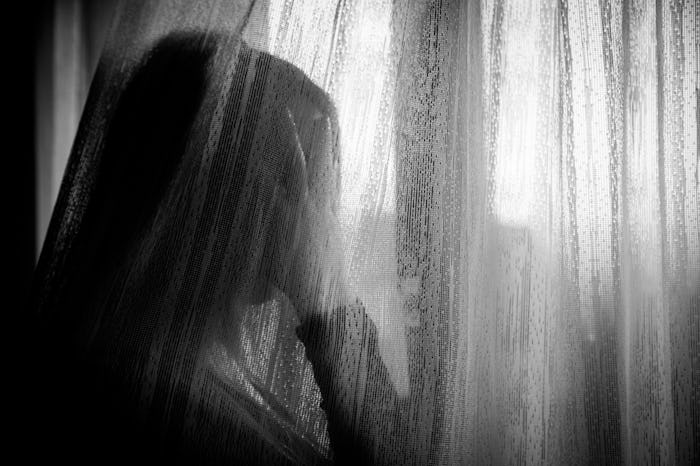Life

How Many Women Are Affected By PPA? Postpartum Anxiety Is More Common Than You Think
Although postpartum depression is finally receiving some much-needed attention, there is another way motherhood and mood disorders can combine. For many women, postpartum anxiety — more commonly referred to as PPA — is an unwelcome addition to the new family. To fully understand this condition, it helps to know what postpartum anxiety is, how many women are affected by PPA, and when to seek help.
For starters, it's helpful to grasp the basics of postpartum anxiety. Sure, most people will greet the arrival of a new baby with some degree of worry, but PPA takes these routine fears to the next level. According to AnxietyBC, PPA includes a level of anxiety that keeps building up, and possibly interferes with the mother's ability to care for her newborn baby. As further noted by AnxietyBC, the anxiety may show up in the form of physical symptoms (such as sleeping troubles), racing or obsessive thoughts, and/or behavioral traits (such as avoiding certain situations). To put it bluntly: PPA sucks.
Moreover, PPA affects a significant number of new mothers. The exact number may vary depending on which studies you consult, but it's high. According to Postpartum Support International, approximately 10 percent of postpartum women will experience anxiety. Along these lines, a 2013 study in Pediatrics found that 17 percent of mothers exhibited signs of postpartum state anxiety in a randomized, controlled study of 1123 participants. Also, because many women may feel ashamed of their anxiety and avoid seeking help, the actual percentage of women who experience PPA may be even higher than these numbers suggest. It's difficult to gauge the number of new mothers suffering from PPA in total silence and secrecy.
Because the arrival of a newborn is bound to change anyone's life, the signs and symptoms of PPA are sometimes overlooked. After all, most anyone faced with the task of caring for an infant on little to no sleep is bound to get a little frayed. But again, PPA takes expected maternal fears and troubles to the next level. According to Postpartum Progress, some symptoms of PPA include racing thoughts, disturbing thoughts, intense worry, a sense of dread, and the need to constantly check on things. To make matters more confusing, PPA may show up in physical symptoms such as headaches, nausea, or even panic attacks, as further noted in Postpartum Progress.
Additionally, you may also experience postpartum depression and postpartum anxiety at the same time, because life can be massively unfair. Because of this, it's helpful to know the signs of postpartum depression as well. You can experience some, or even all, symptoms of PPD and PPA at once.
In the end, PPA is an awful condition for any new mom to face, but resources for dealing with postpartum anxiety are definitely available. Postpartum Support International provides one good starting point, because they offer ways to help you find local resources for PPA help. In addition, Postpartum Progress also has a fantastic list of treatment resources for postpartum mood disorders, whether you live in Alabama, Nova Scotia, or Switzerland. (Seriously, it's an expansive list). You can also work with your health insurance organization to find appropriate, affordable counseling and/or psychiatry resources in your area. Lastly, in case of an emergency, don't hesitate to contact local medical or emergency services. If your anxiety reaches the point where you're concerned about hurting yourself or your baby, reach out to someone immediately.
On the whole, postpartum anxiety is a cruel condition. What's more, because PPA may affect as many as one out of every 10 mothers, it's far too common. If any of these signs of PPA sound familiar to you, then don't hesitate to reach out for help today.